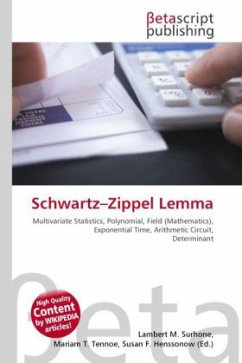High Quality Content by WIKIPEDIA articles! In mathematics, the Schwartz kernel theorem is a foundational result in the theory of generalized functions, published by Laurent Schwartz in 1952. It states, in broad terms, that the generalized functions introduced by Schwartz himself (Schwartz distributions) have a two-variable theory that includes all reasonable bilinear forms on the space D of test functions. The space D itself consists of smooth functions of compact support. The traditional kernel functions K(x,y) of two variables of the theory of integral operators having been expanded in scope to include their generalized function analogues, which are allowed to be more singular in a serious way, a large class of operators from D to its dual space D of distributions can be constructed. The point of the theorem is to assert that the extended class of operators can be characterised abstractly, as containing all operators subject to a minimum continuity condition. A bilinear form on D arises by pairing the image distribution with a test function.
Bitte wählen Sie Ihr Anliegen aus.
Rechnungen
Retourenschein anfordern
Bestellstatus
Storno








